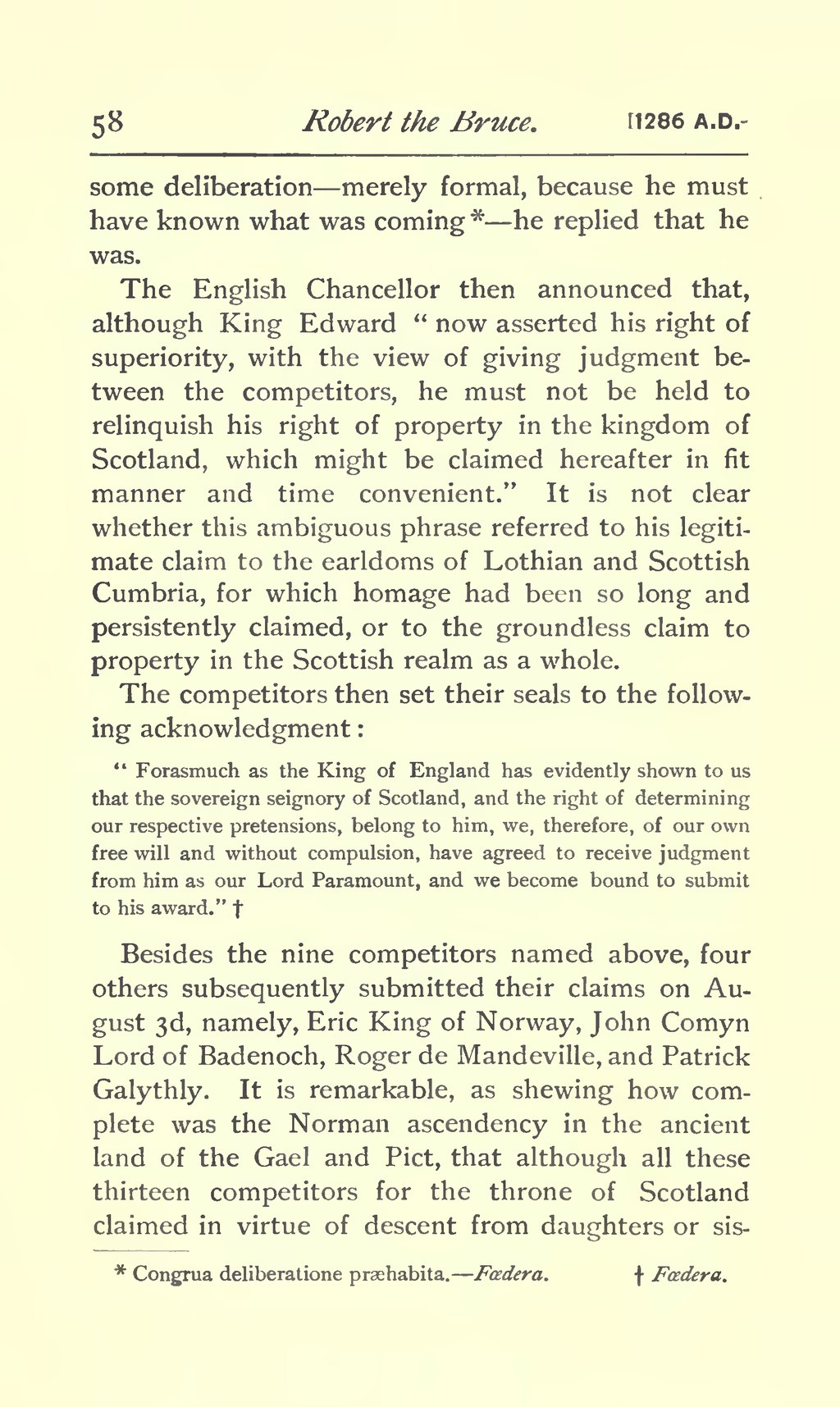some deliberation—merely formal, because he must have known what was coming[1]—he replied that he was.
The English Chancellor then announced that, although King Edward "now asserted his right of superiority, with the view of giving judgment between the competitors, he must not be held to relinquish his right of property in the kingdom of Scotland, which might be claimed hereafter in fit manner and time convenient." It is not clear whether this ambiguous phrase referred to his legitimate claim to the earldoms of Lothian and Scottish Cumbria, for which homage had been so long and persistently claimed, or to the groundless claim to property in the Scottish realm as a whole.
The competitors then set their seals to the following acknowledgment:
"Forasmuch as the King of England has evidently shown to us that the sovereign seignory of Scotland, and the right of determining our respective pretensions, belong to him, we, therefore, of our own free will and without compulsion, have agreed to receive judgment from him as our Lord Paramount, and we become bound to submit to his award."[2]
Besides the nine competitors named above, four others subsequently submitted their claims on August 3d, namely, Eric King of Norway, John Comyn Lord of Badenoch, Roger de Mandeville, and Patrick Galythly. It is remarkable, as shewing how complete was the Norman ascendency in the ancient land of the Gael and Pict, that although all these thirteen competitors for the throne of Scotland claimed in virtue of descent from daughters or sis-
